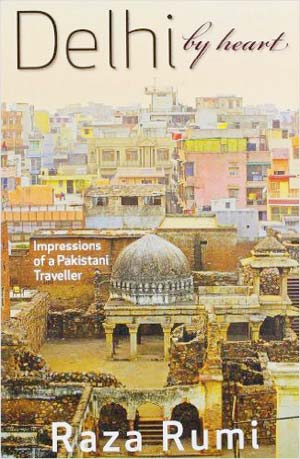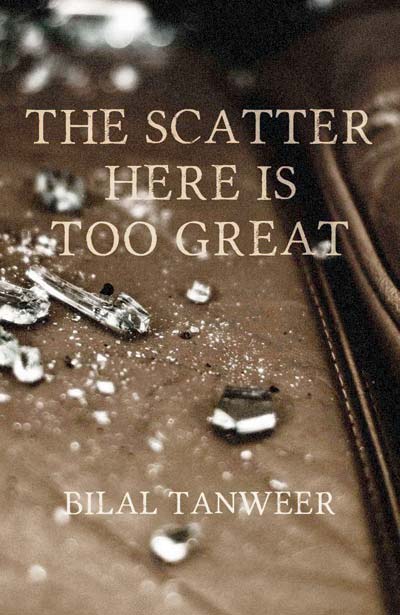Why are Pakistani authors finding a home in Indian publishing? Preeti Singh launches a cross-border investigation

When US-based Pakistani author Asif Ismael began seeking representation for his satire, set in a not-so-distant future Pakistan, getting it published in the subcontinent was not an option he had explored. Until a friend connected him to Kanishka Gupta of Writer’s Side, an Indian-based literary agency. To Ismael’s delight, “Within hours of receiving my manuscript, Kanishka decided to represent me.” This month, the literary agent negotiated a sweet deal with one of India’s leading publishers for Ismael’s book.

Raza Rumi’s Delhi By Heart
In recent years, many established and debuting Pakistani authors, (resident and non-resident), have found a home for their books in India. According to Gupta, “India is a new market for most Pakistani authors, and many depend on literary agents to help them navigate the market. My authors have come via other authors and friends; I am their contact point in India.”

Bilal Tanweer’s The Scatter Here Is Too Great
The numbers are on the rise. Currently, Gupta represents more than 22 Pakistani authors; almost a third were added in the last year. These include Faiz’s grandson Ali Hashmi, Raza Rumi, Saqib Mausoof, Ali Akbar Natiq, Reema Abbasi and Sabyn Javeri. Mita Kapur of Siyahi, represents Faiqa Mansab, Soniah Kamal and Abbas Zaidi. And Aanchal Malhotra at Red Ink has Qaisra Shahraz, Kanza Javed, Akbar Agha, Umair Naeem and Aquila Ismail as her authors.
India’s attraction
While traditionally, subcontinental authors have sought US and UK publishers, for global exposure to the English-speaking world and higher advances paid by them, there are signs of a shift. Many authors feel that most Western publishers are inward looking, or seek standard humiliation memoirs and third-world stories. In contrast, Indian publishers are willing to take risks with new materials. London-based Omar Shahid Hamid’s first book The Prisoner failed to find a publisher in the UK and he is happy about being published by Pan Macmillan India. Hamid says,” The book’s success confirms that there is a natural audience in Pakistan and India, for stories like mine.”

When Haroon Khalid’s manuscript was rejected after months of negotiation in Pakistan, he looked toward India, “I knew that my topic (minorities in Pakistan) would spark an interest there. What also helped is the knowledge that Pakistani writers like Muhammad Hanif and Mohsin Hamid have also successfully published in India.”
Few Pakistani publishers release works in English in Pakistan. OUP Pakistan is the best publishing house and they only do certain genres. Authors also lament that the Pakistani publishing industry lacks editorial and marketing talent required to create and sell books. There is little scope for fiction writers in English (literary and commercial).
The rise of a radical/conservative interpretation of Islam has led to insidious censorship. Since blasphemy laws in Pakistan carry a death sentence, great caution is exercised with content. Ismael says, “Criticising the military is deemed treason, and the radicals’ agenda blasphemy. You definitely don’t want to publish your book in Pakistan, if it is even nominally critical of religion, or the army, or the founding fathers.” Adds Khalid, “The market in Pakistan is much smaller. A major publishing house here may publish 500 copies of a new author compared to 3000 in India. Books also easily travel from India to Pakistan giving Pakistani publishers a tough time.”
Familiar cultural narratives
Indian publishers are upbeat about their Pakistani authors. Renuka Chatterjee, VP (Publishing)- Speaking Tiger, who has previously published Bina Shah and Shehryar Fazli is always intrigued by stories from Pakistan. Chatterjee says, “Maybe it’s a matter of ‘ghar ki murgi dal barabar’ — but I’ve often found Pakistani novels more absorbing than Indian ones. Whenever I come across a manuscript, or a book from Pakistan, I am compelled to read it, and if possible, publish it.”
Pan MacMillan publishes works of Maha Khan Phillips, Musharraf Ali Farooqi, Omar Khalid Ahmed and translations of Mohammad Khalid Akhtar, and publisher Diya Kar Hazra finds Pakistani authors, “They are fine writers. It makes me happy when we are able to be the right home for writers across borders.” Newcomer Juggernaut has well-known Pakistani authors like Ali Akbar Natiq, Umeira Ahmed and Husain Haqqani in its catalogue. India’s cultural landscape ensures that Pakistani authors do not have to succumb to Western stereotypes. Their protagonists are unmistakably Pakistani, and the narratives are sprinkled with Urdu that need little explanation in India. However, Khalid insists there is a stereotype, “In India, Pakistan is viewed as a failed state and the hub of religious terrorism. Any book that reinforces that stereotype will be of interest to Indian publishers. Similarly, any book that takes a contrasting view to the stereotype will also spark interest.”
Post 9/11
Stereotypical or not, there is an edginess to the Pakistani narratives. The changes in the country post 9/11 define many stories; the question of identity of a society grappling with entrenched tradition and modernity, of armed forces caught between corrupt politicians, jihadis and a crumbling system are gritty, powerful, and familiar.
The interest in Indian literature is reciprocal. Says Aanchal, “Several Indian authors are invited as panelists to literary festivals in Pakistan.” Yet, political posturing casts a dampener. Authors on both sides are often denied visas for literary festivals. Last year, Kanza Javed, the author of Ashes, Wine and Dust was denied a visa to India, and attended the Kumaon Literary Festival via Skype.
Politics aside, insists Hazra, “We will always find ways of celebrating each other, because we will always have this shared culture, this mutual admiration for great art and literature.”
 Subscribe today by clicking the link and stay updated with the latest news!" Click here!
Subscribe today by clicking the link and stay updated with the latest news!" Click here!







